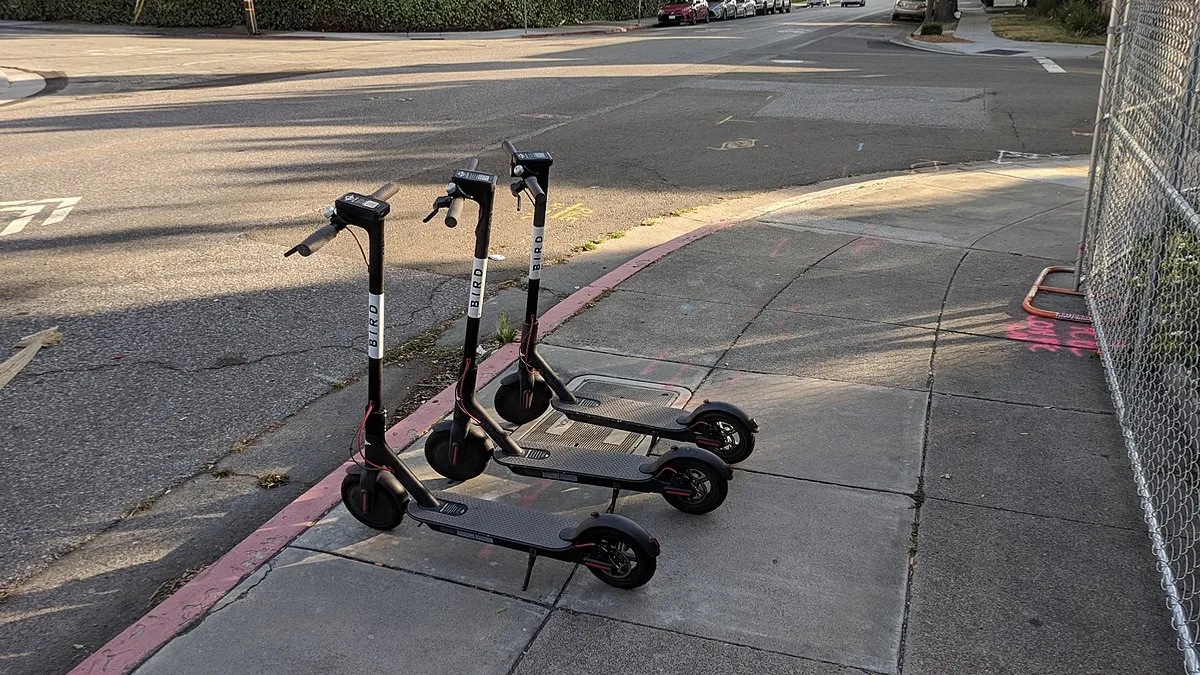UPDATED, March 7, 2019: In the coming weeks, Bird will roll out its Bird Platform program in New Zealand, Canada and Latin America, enabling a path for entrepreneurs to build sustainable e-scooter businesses under the guidance of Bird. The entrepreneurs who participate in the program will be able to set their own pricing, zoning and even add their own branding to the scooters. Bird will collect 20% of each trip fare.
"Through Bird Platform we help empower independent entrepreneurs to bring environmentally-friendly transportation options to their community while investing in a sustainable future for everyone," CEO Travis VanderZanden said in a statement.
VanderZanden told TechCrunch that the program is designed to bring scooter access to regions where the company "[isn't] planning to launch," suggesting this program will not be accessible in the U.S.
Dive Brief:
- Bird will now let individuals manage and rent out their own fleets of electric scooters through the Bird Platform program. Operators will be able to brand the scooters and use Bird’s charging and maintenance infrastructure.
- Operators will have to pay an up-front cost for the vehicles and permitting, and pay a 20% service fee on every ride, but otherwise can collect any revenue.
- CEO Travis VanderZanden told TechCrunch that there were already 300 parties on a waiting list for the program, which will initially focus on cities where scooters are already popular and regulations are more relaxed.
Dive Insight:
As dockless scooters continue to flood major cities and become a major mobility player, it’s natural that new startups would want to take advantage. Bird Platform removes some of the barriers by offering infrastructure (although managers could handle their own charging) and the business backing of Bird, one of the largest scooter companies.
In an interview with TechCrunch, VanderZanden said there had been requests from entrepreneurs wanting to bring scooter fleets to their cities. “I think there’s been a lot of people passionate about the electric scooter movement and taking cars off the road,” VanderZanden said.
The new players are likely to come into conflict with regulators trying to make sure that scooters don’t litter sidewalks or crowd streets. Cities have been trying to either cap vehicles or ensure that they are parked in designated spots or with locking mechanisms, and even scooter companies themselves have been trying to self-police. Bird is even setting aside money for protected bike lanes and bike lane repair for its riders.
New fleet managers could cause more problems, or complicate the relationship with skeptical cities, possibly mirroring the chaos created when new startups launched unannounced in unsuspecting cities earlier this year. That’s why the company says it will focus on easier markets for the initial launch. With cities like San Francisco and Los Angeles limiting the number of scooters (Bird doesn’t even have a permit in San Francisco), Bird Platform will have to walk a tightrope with inexperienced fleet managers in its early going.














